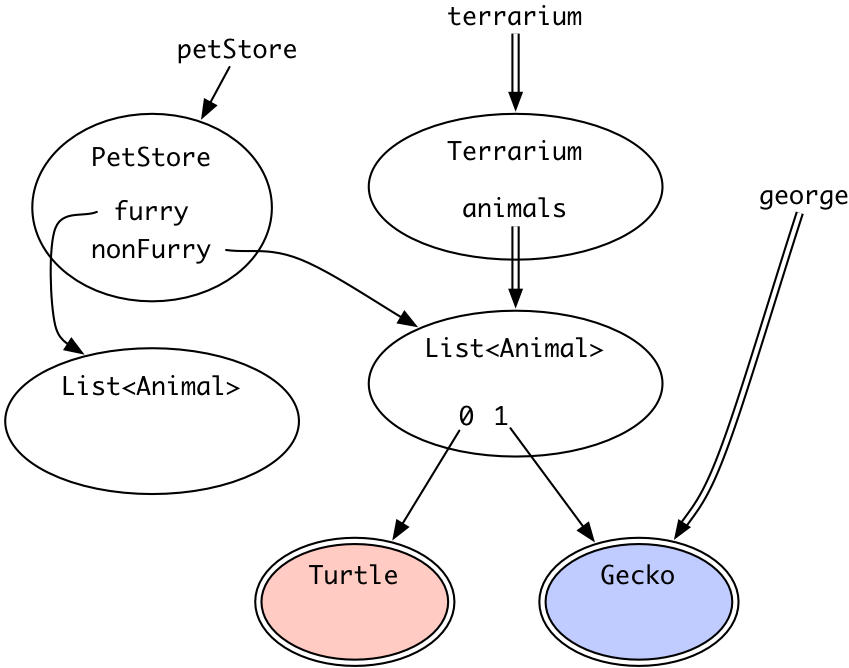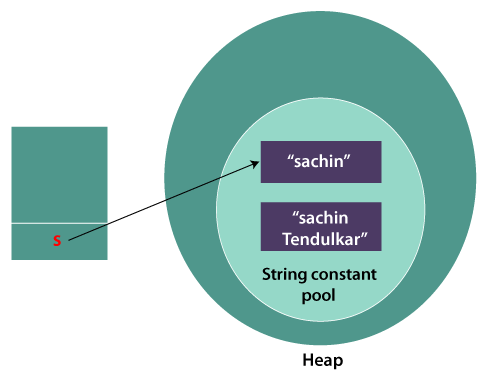Why Are Strings Immutable in Java? Comprehensive Evaluation for Designers
Why Are Strings Immutable in Java? Comprehensive Evaluation for Designers
Blog Article
Discovering the Benefits of Immutable Strings in Modern Shows Paradigms
In the realm of contemporary shows paradigms, the principle of unalterable strings stands as a keystone of robust software application development. The advantages they provide go beyond simple ease; they essentially change the means information is handled within applications. By taking on unalterable strings, programmers can make certain enhanced data honesty, improved thread safety, streamlined debugging procedures, boosted safety procedures, and effective efficiency optimization. These benefits act as a testimony to the profound influence that accepting immutability can carry the reliability and efficiency of software systems.
Boosted Information Stability

By protecting against the adjustment of string objects, immutability removes the danger of unintended modifications to the information they hold. This not only enhances the protection of the details yet likewise enhances the dependability of the code that counts on these strings.
Immutability also sustains much safer multithreading settings, as concurrent access to immutable strings does not present the danger of information corruption through synchronised alterations. This home streamlines the process of handling strings in identical programs scenarios.
In significance, immutability acts as a safety guard around the data saved within strings, boosting their integrity by making sure that when specified, their worths stay unchanged throughout the program's implementation.

Enhanced Thread Safety
Immutable strings enhance the string safety and security of programs by guaranteeing that once a string things is developed, its value can not be modified. This residential property gets rid of the risk of simultaneous threads attempting to change the exact same string simultaneously, which can bring about data corruption or inconsistent states in the program - Why are strings immutable in Java?. In a multi-threaded environment, where multiple strings access and adjust data all at once, the immutability of strings offers a degree of security by assuring that the data stays unchanged throughout its lifecycle
Streamlined Debugging Processes
Offered the enhanced thread security helped with by immutable strings, a considerable benefit occurs in the realm of simplified debugging processes. Immutable strings, as soon as developed, can not be modified, making it much easier to trace the flow of data and recognize the resource of bugs in a program. This immutability makes certain that strings stay consistent throughout the implementation of the program, lowering the chance of unforeseen modifications that can cause mistakes.
When debugging with get redirected here mutable strings, designers typically experience concerns where a string's value is changed unintentionally, making it challenging to pinpoint the root reason of a bug. Nonetheless, with immutable strings, the information continues to be unmodified, allowing developers to focus on examining the real reasoning of the code as opposed to tracking down where and when a string was changed improperly.
Additionally, immutable strings streamline the debugging procedure by allowing simpler reproduction of bugs. Considering that unalterable strings do not change state, designers can recreate and study bugs better, bring about quicker recognition and resolution of issues within the codebase. This streamlined debugging operations inevitably adds to higher software program top quality and enhanced total growth effectiveness.

Boosted Security Steps
Enhancing data defense and strengthening system stability, the application of unalterable strings in software program applications contributes significantly to boosted protection steps. Immutable strings also play an essential duty in avoiding typical safety vulnerabilities such as buffer overflows and SQL injection assaults, as efforts to control string information at runtime are naturally restricted.
In addition, the immutability of strings improves the predictability of program habits, making it much easier to confirm inputs and prevent unforeseen adjustments that might endanger protection. This predictability official site streamlines the procedure of auditing and confirming code, making it possible for designers to recognize possible security loopholes better. On the whole, including immutable strings into software program development techniques not only improves the robustness and dependability of applications but also strengthens their durability versus protection hazards.
Reliable Efficiency Optimization
Structure upon the structure of enhanced safety actions attained via the application of immutable strings, a crucial facet to think about in software development is reliable efficiency optimization. When taking care of mutable strings, procedures like concatenation or substring development usually result in the production of brand-new string objects, leading to memory expenses and increased handling time. However, with unalterable strings, these operations can be maximized to improve performance. By allowing strings to continue to be consistent and unchangeable, unalterable strings help with far better memory administration and caching opportunities, ultimately improving the total effectiveness of the software application.
Since immutable strings can not be modified when developed, they can be shared throughout threads without the threat of unexpected modifications, lowering the need for synchronization systems and boosting concurrency. Immutable strings streamline debugging procedures as developers can rely on that a string's worth will continue to be regular throughout the program's implementation, getting rid of potential mistakes caused by mutable state adjustments.
Conclusion
To conclude, the advantages of using unalterable strings in contemporary shows paradigms can not be overstated. Boosted data integrity, enhanced string safety and security, simplified debugging processes, enhanced security actions, and effective efficiency optimization all add to the total efficiency of programming jobs. By incorporating unalterable strings right into programs methods, programmers can take advantage of a more durable and reliable codebase.
Immutability, a vital feature of strings in shows languages such as Java and Python, makes sure that when a string things is developed, it can not be modified or changed.Immutable strings boost the thread safety of programs by ensuring the original source that when a string object is produced, its value can not be modified. Unalterable strings additionally play a vital function in stopping common protection susceptabilities such as buffer overflows and SQL injection assaults, as efforts to adjust string information at runtime are naturally limited.
By allowing strings to continue to be unchangeable and continuous, unalterable strings facilitate better memory administration and caching chances, eventually enhancing the total performance of the software application.
Unalterable strings simplify debugging procedures as programmers can rely on that a string's worth will certainly remain regular throughout the program's implementation, eliminating potential errors caused by mutable state changes.
Report this page